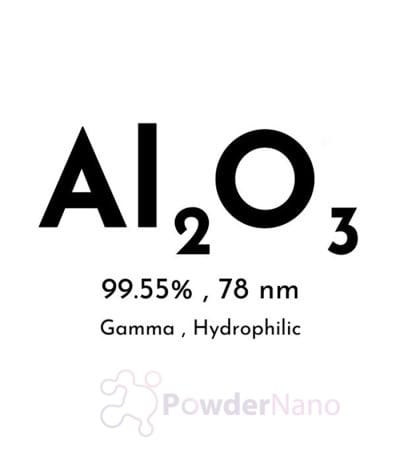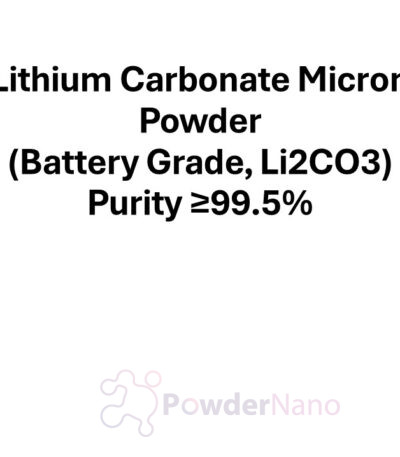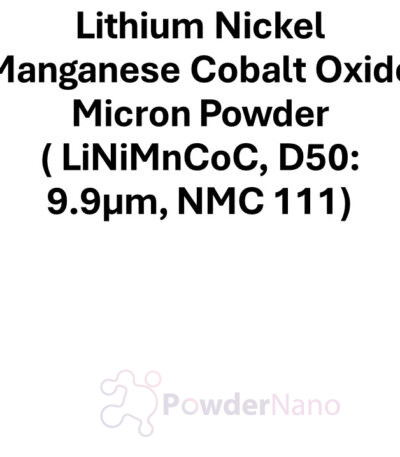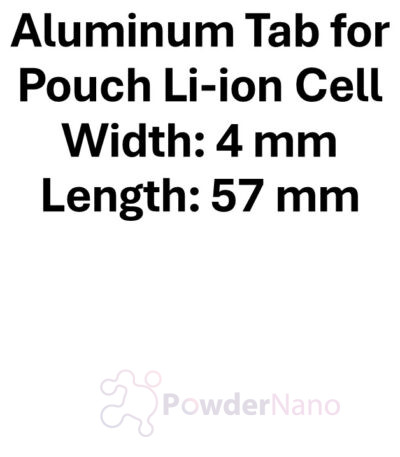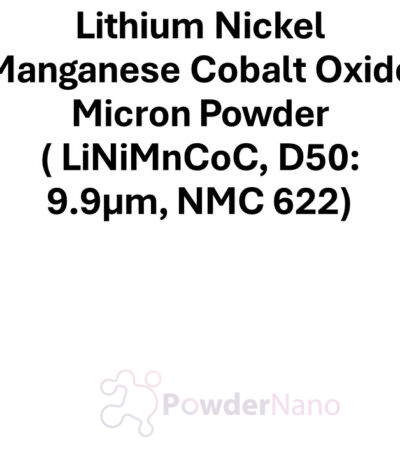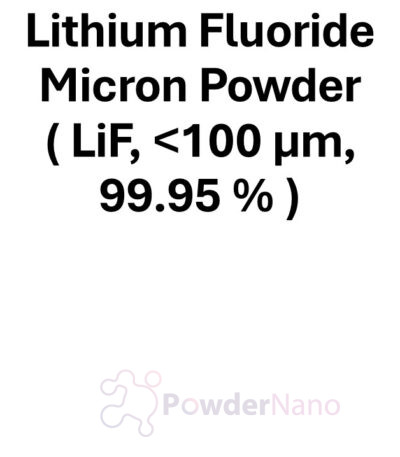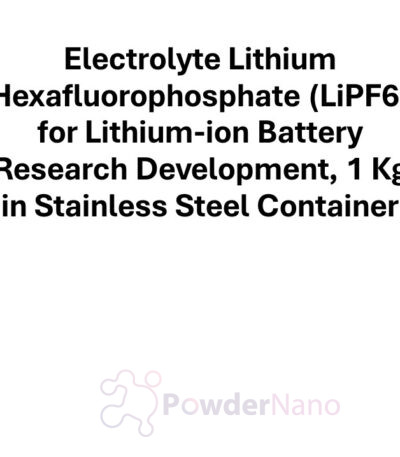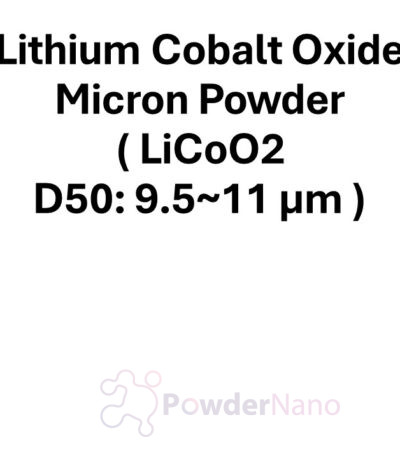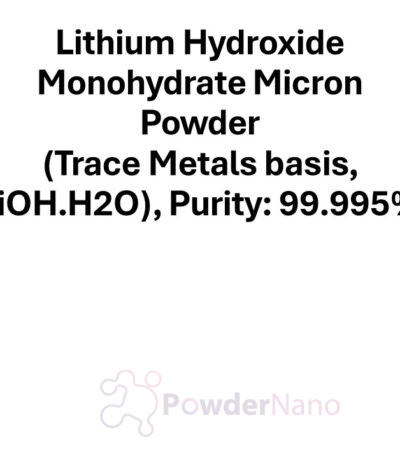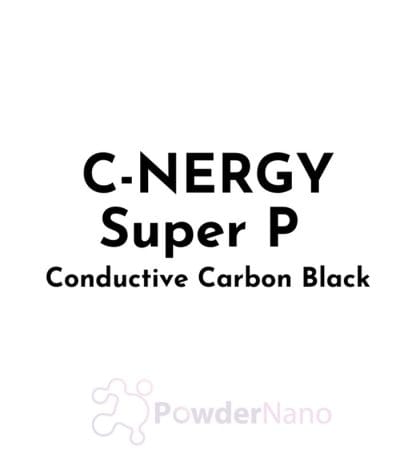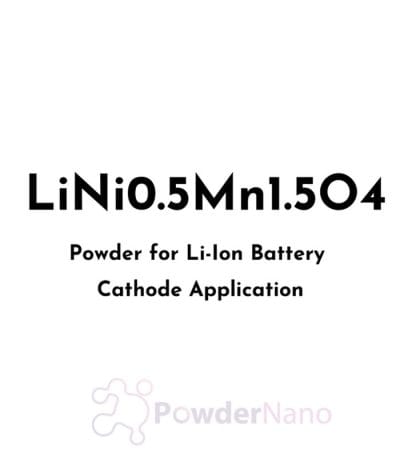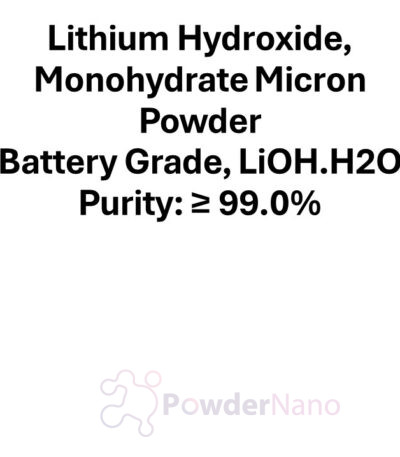Lithium Hydroxide, Monohydrate Micron Powder (LiOH·H₂O) is a highly pure compound tailored for advanced industrial and technological applications, particularly in energy storage systems. This material, characterized by its fine particle size and high chemical purity (≥ 99.0%), is an essential precursor in the manufacturing of lithium-based energy storage solutions and specialty chemicals.
Technical Properties
- Chemical Composition
- Formula: LiOH·H₂O
- Purity: ≥ 99.0%
- Appearance: White micronized powder
- Molecular Weight: 41.96 g/mol
- Solubility: Soluble in water and slightly soluble in alcohol.
- Physical Characteristics
- Particle Size: Micronized to enhance reactivity and uniformity.
- Density: Approximately 1.51 g/cm³.
- Melting Point: Decomposes above 450°C.
- Thermal Stability
- Highly stable at ambient temperatures, resistant to degradation under controlled storage conditions.
- Reactivity
- Strongly basic, reacts readily with CO₂ in the atmosphere to form lithium carbonate (Li₂CO₃), necessitating storage in airtight containers.
- Battery-Grade Standards
- Low levels of metallic and non-metallic impurities, ensuring suitability for high-performance battery applications.
Applications
1. Lithium-Ion Batteries (LIBs)
- Cathode Material Precursor: LiOH·H₂O is a critical raw material for synthesizing lithium compounds like lithium cobalt oxide (LiCoO₂), lithium nickel manganese cobalt oxide (NMC), and lithium nickel cobalt aluminum oxide (NCA) used in battery cathodes.
- High Energy Density Applications: The high purity ensures minimal contamination, optimizing the energy density and cycle life of LIBs, especially in electric vehicles (EVs) and portable electronics.
- Stability and Efficiency: Its role in stabilizing electrode materials contributes to efficient charge/discharge cycles.
2. Specialty Chemicals
- Serves as a base material in producing lithium stearates, used as thickeners in high-temperature lubricants.
- Applied in the synthesis of lithium salts, widely used in diverse industrial applications.
3. Carbon Dioxide Scrubbing
- Environmental Applications: LiOH·H₂O is utilized in CO₂ absorption systems, including air purification in spacecraft and submarines, due to its high reactivity with carbon dioxide.
4. Glass and Ceramics Industry
- Enhances the durability and thermal resistance of specialty glass and ceramic products.
5. Alkaline Electrolytes
- Incorporated into alkaline battery electrolytes to improve conductivity and operational stability.
Advantages of Battery Grade LiOH·H₂O
- High Purity: The low impurity levels minimize risks of side reactions in sensitive battery environments.
- Consistent Quality: Uniform particle size enhances manufacturability and performance consistency.
- Environmental Benefits: A critical component in clean energy technologies, supporting the global transition to sustainable energy systems.
Storage and Handling
- Storage Conditions: Must be stored in airtight containers in a cool, dry environment to prevent reaction with atmospheric moisture and CO₂.
- Handling Precautions: Appropriate personal protective equipment (PPE) is necessary due to its basic and hygroscopic nature.
Conclusion
Lithium Hydroxide, Monohydrate Micron Powder (Battery Grade, LiOH·H₂O, Purity: ≥ 99.0%) is an indispensable material in modern technological advancements, particularly in energy storage and specialty chemical applications. Its fine-tuned properties and high purity levels make it a cornerstone of the lithium-ion battery industry, underscoring its critical role in shaping the future of clean energy and advanced materials.
